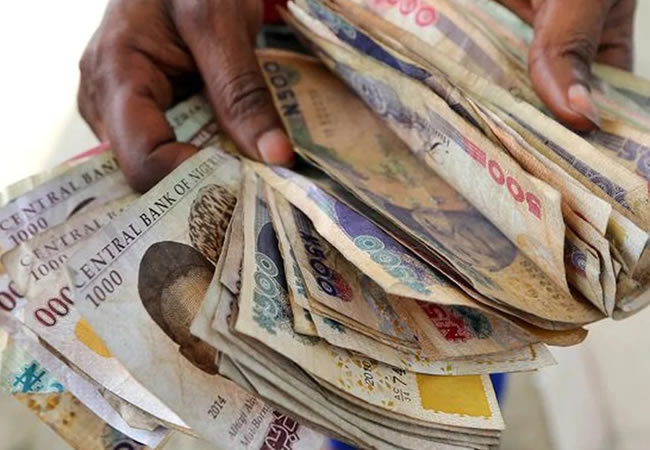The Nigerian naira fell by around 7% in the foreign currency (FX) market as a US dollar shortage put pressure on demand and supply. According to FX spot data from the FMDQ website, the Naira fell by 6.83% and closed at ₦1,658.97 per US dollar on the official market.
Weak FX liquidity in the currency market has kept exchange rates high for several months following the official devaluation. Nigeria is experiencing an acute US dollar deficit as a result of its overreliance on oil exports as the primary source of foreign currency receipts.
Government foreign exchange revenue has decreased as a result of numerous oil-backed debts, while the country struggles to satisfy the Organization of Petroleum Exporting Countries’ (OPEC) daily quotas.
Analysts hinted that while the naira is falling, the external reserves balance has continue to making an uptrend, reaching $38.67 billion.
But the larger part of the gross foreign reserves is noted to have been pledged in series of oil-backed loan deal entered into by the Nigerian National Petroleum Corporation Limited.
In the parallel market, the Naira closed at ₦1,680 to the US dollar due to deficiency of strong foreign currency stock in the supply side.
Oil prices declined more than 4% in the global commodity market following reports that Israel assured the U.S. it has no plans to target Iran’s oil facilities.
Israeli official statement alleviated concerns about a potential disruption in Middle Eastern oil supply. Brent prices decreased by 4.42% to $74.04, and WTI prices saw a 4.67% drop to $70.38.
Meanwhile, gold prices rose, supported by falling Treasury yields, as investors awaited further data for insights into the Federal Reserve’s monetary policy. Gold reached $2,680.10 per ounce.











